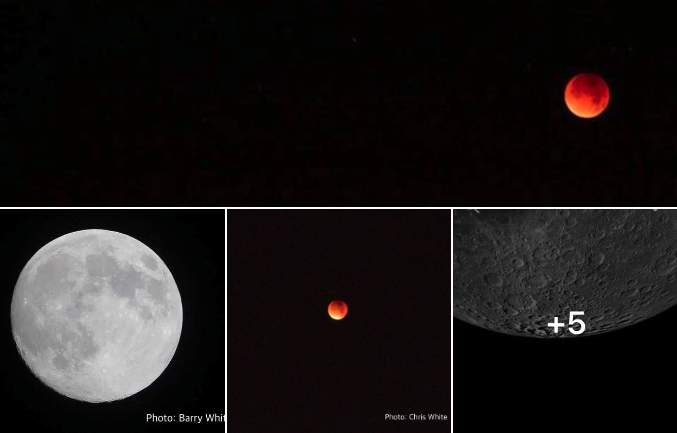
Sunsets, rainbows and Facebook Pages: How we ‘belong’ to local communities online
This is my second response in our series of Media and Place cluster prompts/responses for 2023.
One particular aspect of my PhD work that intrigued me was how users of the hyperlocal Facebook Pages I was studying often responded to content in functionally ‘unnecessary’ ways. News of the death of a local person or celebrity would often be met with repeated comments of ‘RIP’, where a shorthand for this could have been to simply click ‘Like’ on the first such comment. The point to draw from this is that not everything we do online is driven only by function, or the quickest or neatest approach to a task – sometimes we respond in a particular way to show or feel that we ‘belong’ to a community.
One abiding memory of this was of people posting photos of sunsets. Here’s an excerpt from my PhD:
As well as providing witness of events, photography was a way of individuals making a social connection. For example, weather photos came up regularly in both my B31 Voices and WV11 diaries, 23 and 20 times respectively. Asking my Community Panel Group why they felt people responded to sunset pictures by posting similar ones of their own, Susan suggested: “Theirs are better? Not bothered to look at what’s already there? Share an event?”. She frames it as competitive, or as indicating how readers will not read other comments. But her third point is also correct: the photographic act can be seen as a social communication that others can appreciate in itself, or further partake in with their own image. Given that the photos were often so similar and that they accompanied them with the name of their area, there was sometimes a sense that they were contributing to a photographic conversation of affective connection.
My Community Panel Group reported that they ‘loved’ those kinds of posts and Jean described that during a storm, she “drew the curtains as it was so dark but heard the rain and the thunder, didn’t see any hail but did see the pics on B31” – the social, collective experience online was more appealing to her. Here then, I suggest that we can extend on Williams’ (1990) notion of “mobile privatisation” as a combination of 1) private choice that 2) exposes us to the outside world – in addition, Jean is 3) enabled to experience and connect with others through such media. The extent of this connection is demonstrated in collections of otherwise relatively meaningless photographs, as seen in the documentation of a ‘red moon/supermoon’ event [see picture, screenshot from B31 Voices’ Facebook Page]. The thread of such comments clearly situates readers as part of a local collective – they had to be in that area to take the photo, so they present themselves as part of a shared experience by posting to the page. While their study focused more squarely on citizen “photojournalism” in disaster or crisis situations, Allan and Peters (2015: 15) similarly identified as part of the citizen’s motivation “a desire to share a personal perspective or experience with wider publics” and “a commitment to civic duty or related forms of obligation”. When these motivations are combined, as in hyperlocal media spaces, we can understand them as part of those naturalised practices that are “simply done” (Giddens, 1984: 7) that become reflexive in assisting people with their connection to and understanding of the neighbourhood. Regardless of motivation though, this contributes to a collective narratisation of the locality, significant in the recording of such events, but also in the recording of people’s response.
My memory of collecting and writing about these social connections was that many of them revolved around people’s shared photos of sunsets or other events, with others responding in the comments with their own photo of the same, but taken from their own individual and literal angle – like this example of a sunset, and this of a rainbow. To this day, if I’m driving around the area and notice a particularly striking sunset, I think to stop and take a sunset, but can be safe in the knowledge that someone else will probably have already done so, and posted it to my local Facebook Group.
